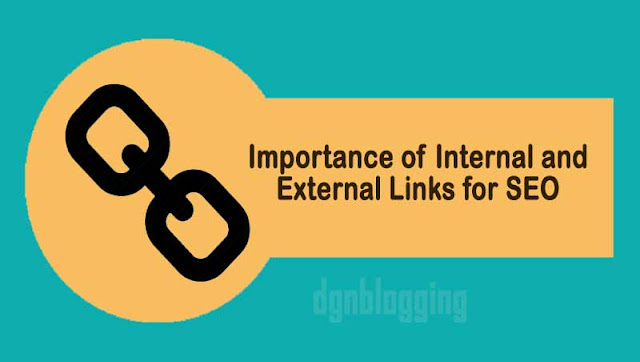Every blogger will try their best so that the managed blog gets the best SEO. Various SEO techniques try to be applied to increase visibility, authority and better ranking. With good SEO, the position of the blog page is expected to rise so that it appears in search engine search results, the blog can become an authority blog because of quality and trusted content and the ranking of the page or blog also gets better.
One strategy to encourage better SEO is through links. Search engines like Google consider links as votes that a web page is valuable and worth promoting. SEO experts know that quality and relevant links are very important to encourage better SEO. Links also transfer value or equity owned to other web pages.
1. Internal link and external link.
Links on a web page can be internal links and external links. Internal links, also called inbound links, will direct visitors to other pages on the same blog or website, while external links, also called outbound links, will direct visitors to pages on different blogs or websites. In SEO, internal and external links are equally important when used correctly.
Some bloggers think that external links are counter-intuitive. This is because visitors are directed to pages on other blogs or websites. External links cause visitors to leave a blog or website to go to another blog or website. Many bloggers avoid adding an external link on a web page because it can increase the bounce rate.
Read the article: Bounce Rate Analysis: Causes and How to Reduce it
However, external links that lead to web pages from blogs or websites that have high authority can increase the credibility of the blog or website where the external link originates. For SEO purposes, external links also help Google find out the content of web pages on your blog or website. External links can also increase page rank when heading to popular and relevant sources from sites that have high authority.
2. The importance of internal links.
Visitors can use internal links to get more complete information and will stay on the blog or website for longer. This can reduce the bounce rate. Internal links are also important for a better user experience. Visitors do not have to search for related articles through a list from the navigation menu or search box, related articles are available through internal links within the article.
Internal links can increase the authority and ranking of web pages. Each web page of a blog or website may have a different ranking. If you have a new article, you can add a link from this new article to other relevant articles that already have a higher ranking. Thus, there will be a transfer of value ( link juice ) from old articles to new articles to help get better rankings.
Read the article: Benefits of Internal Links For Blogs or Websites
3. The importance of external links.
Many bloggers avoid adding external links to their web pages. This is because it can cause visitors to leave a blog or website. You also need to check the external link within a certain time frame whether the link is still active or has become a broken link. The quality and quantity of external links are very important. Adding an external link that leads to reliable, informative and high-quality sources can increase the credibility of your blog or website.
Adding an external link will not damage the ranking of the web page as long as it is still relevant and leads to blogs or websites that have high authority. External links will be valuable if they lead to pages that are popular and relevant. Valuable external links can also help increase the authority of web pages by providing visitor references to trusted, informative and high-quality sources.



1 Comments
Thanks for the very informative blog and I are extremely grateful that you perform this piece of writing very simply. Website Designing Companies in Bangalore | Web Design Companies in Bangalore | Web Design Agency in Bangalore | Web Development in Bangalore
ReplyDelete